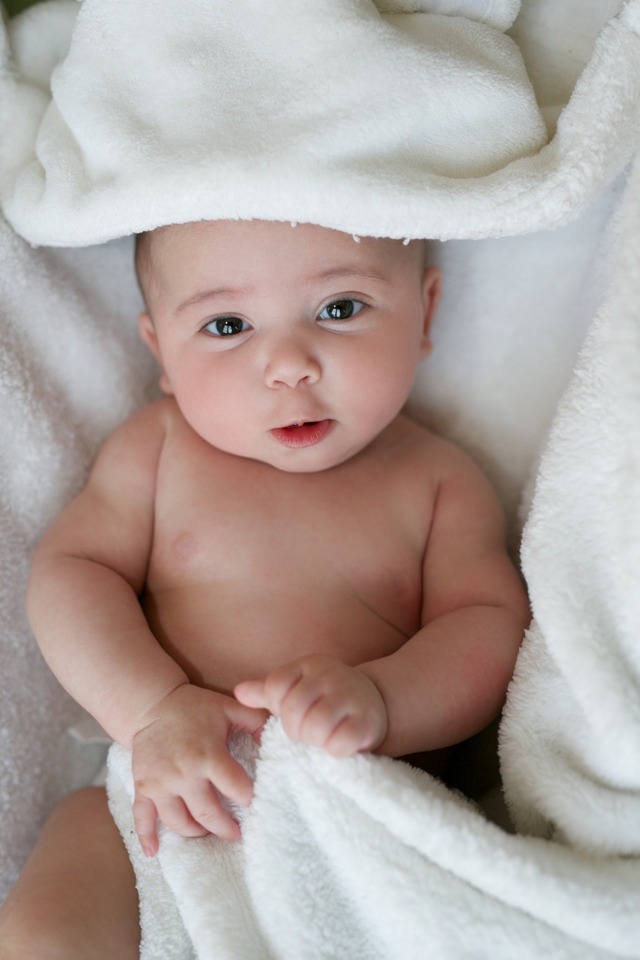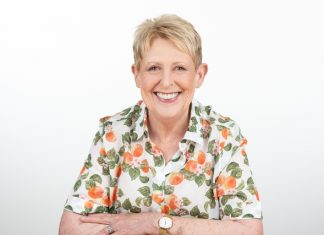PRECEDE: We think we are just playing, but love is the ingredient of healthy brain for life, writes Steve Biddulph.
A tiny baby lies sleeping in their cot, alongside their parents’ bed.
We don’t know if it’s a boy or a girl, but it is just one of around 820 babies born every day in Australia, and 385,000 born somewhere in the world.
When we see a new baby, we can’t help but send off a little prayer that it will have a safe and happy life.
The sheer vulnerability of a newborn stirs our hearts, as it should.
Psychologists are finding out some incredible things about small babies and their journey to adulthood, and especially about what happens between bubs and their mums, dads, or grandparents, depending on who does the raising.
It used to be that people thought very little about babies other than to feed them, keep them warm, and stop them from crying.
But today we are very worried about the infant’s first year because it looks like these are the weeks and months when some big things are decided that will affect them for life.
Whether they will grow up to be kind and able to make good relationships; be able to stay calm and manage stress; and especially that they won’t have some terrible outcome, such as being suicidal or someone who is violent and hurts their partners, or even kills them.
The neuroscience world is discovering, through the magic of brain scanning technology, that in the second six months of a baby’s life, their ‘right cerebral cortex’ – or the right brain, to put it more simply – does not just grow like some little cauliflower in the veggie patch, even though it does rather resemble that vegetable.
It grows, not just from food and the passage of time, but from interacting with the right brain of (usually) Mum!
Our right brains are the playful, affectionate, and loving sides of us, and they especially show up in our facial expressions, the little noises we make around babies, and the teasing or soothing we do to make them alternatively giggle or fall asleep.
The process of growing your baby’s right hemisphere is completely unconscious; it simply happens when you play with them, gaze at them, soothe them, and – hopefully – have a few family or friends around to share this kind of fun and give you a few hours’ break.
If you travel with a baby you will find, especially in countries where people have not felt the chill of consumer capitalism too much, that folks (especially old folks) love to peer into your baby’s eyes, make cooing sounds, and say things like “who is a lovely boy?”.
Researchers find the same things all over the world. We talk to babies in high pitch (which they hear best with their undeveloped hearing), we swing or sway with them in our arms, which signals to them that they are in human arms and safe, and we hold them close to our hearts, where they can hear the heartbeat they knew in the womb. We gaze into their eyes, which are focused at just the right distance to do this (most of the more distant world is a blur for a small baby).
If you are reasonably safe and able to focus on your baby – and especially if you have seen people doing parenting with enjoyment and playfulness – then it is not too hard to enjoy and interact with your little one.
If you are lonely, had a traumatic birth experience, or have a rather uptight nature, then the messiness of babies can bring you unstuck.
No society in the world except our own messed up modern one leaves young parents so alone, and in need of other people to care for us when we find it hard to relax into new parenthood.
When the conditions are right – because someone is making good eye contact and is responsive in their movements and sounds – a baby begins to experience “I am here!” and “I am noticed” so they develop a sense of self.
A sense of self, of being stable and worthwhile, actually grows in the wiring of the right brain.
They experience that when upset – there is a pathway back to feeling OK.
Babies get upset by almost everything – hunger hurts in their tummies, loneliness frightens them, loud sounds or strange voices.
Our soothing of these things builds neural pathways so that in a year or two they know “I can calm down, I don’t have to panic”.
Adults who do terrible things are often in a state of acute panic and disintegration, whereas the people who come to help – the ambulance and medical and hopefully police and counsellors who help to heal – bring an internal sense of calm and love.
They can do this because their mums, dads, or grandparents showed them love and playful affection back when they were tiny.
Parenthood is the most important thing humans do.
We don’t protect young parents or give them enough time or care.
But if you at least know what you are doing is of immense value, you can stick up for your right to do it and give it your whole heart.
Steve’s new book Wild Creature Mind will be out in August from Pan Macmillan.







